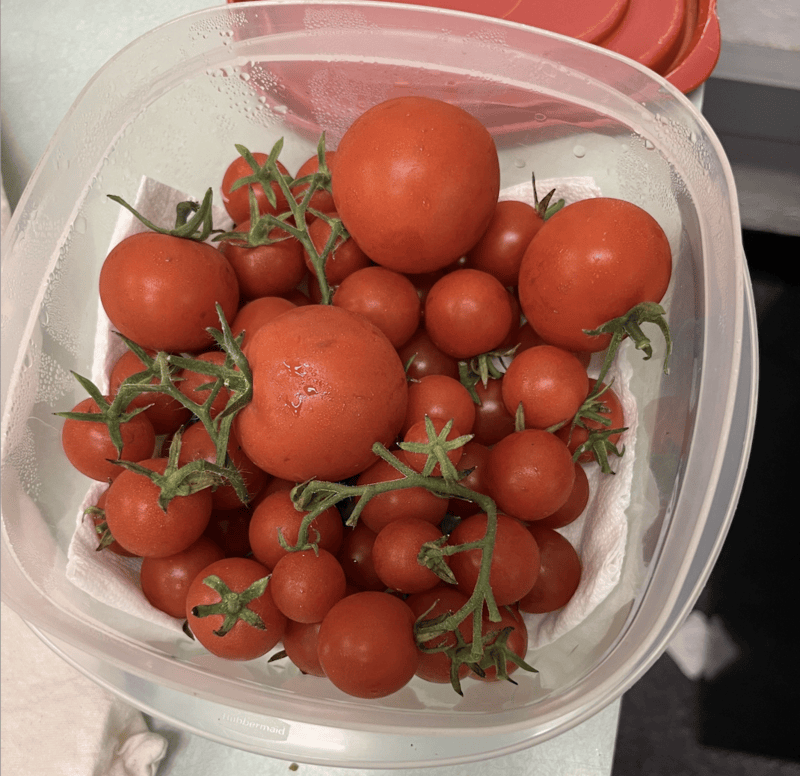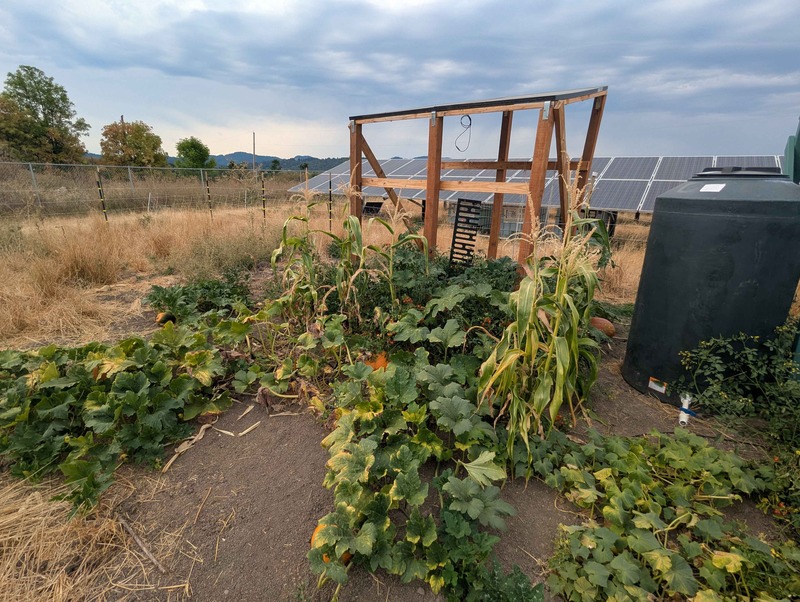This past winter, OSU’s agrivoltaics group, part of the Ecological Engineering Student Society’s Club, has been working to expand their field of crops around a solar panel mount on SW Campus Way.
Agrivoltaics is the use of land for both solar power generation and agriculture. Project managers Erik and Kelsey recently shared updates on the successes, challenges, and future plans for the plot. To read the initial post from this project, click here!
During this first season, irrigation was a challenge. While the group’s rainwater collection system performed well (three 250-gallon tanks completely filled from water harvested off nearby panels), the drip irrigation lines lacked enough pressure to function properly. As a result, the team manually watered crops with the stored rainwater. Some strawberries and beans also struggled in poor soil conditions, and animals from nearby fields managed to snack on a few of the plants. Another issue the team encountered was pests and disease. While not a major setback, the crowded growing space attracted earwigs, ladybugs, and recently, powdery mildew spreading across some plants.
One of the biggest surprises this season was the success of tomato plants! Despite the team’s switch from drip irrigation to manual watering, the tomatoes thrived. With their roots shaded by solar panels, the soil was able to maintain moisture for longer periods, helping the plants use less water. Growing alongside corn and pumpkin added additional shade for the tomatoes, protecting them from the scorching sun.
Even with some setbacks, the expanded water storage met the group’s needs. Summer storms helped replenish the tanks regularly, leaving room for potential plot expansion in the future. Looking ahead, the team hopes to improve and expand the project to provide more opportunities for involvement. Some of their current ideas include automating irrigation, connecting the solar panels to generate electricity for the pump, and collecting data on soil temperature and moisture. By integrating on-site renewable energy use, the team hopes to demonstrate the full value of agrivoltaics.
Students interested in participating are encouraged to get involved with the Ecological Engineering Student Society. The agrivoltaics team is always accepting new members, formal club membership is optional for those who want to join in on the work. Meeting announcements are shared through the club’s Discord and weekly emails, resources are available on the EESS website.
CATEGORIES: Uncategorized


